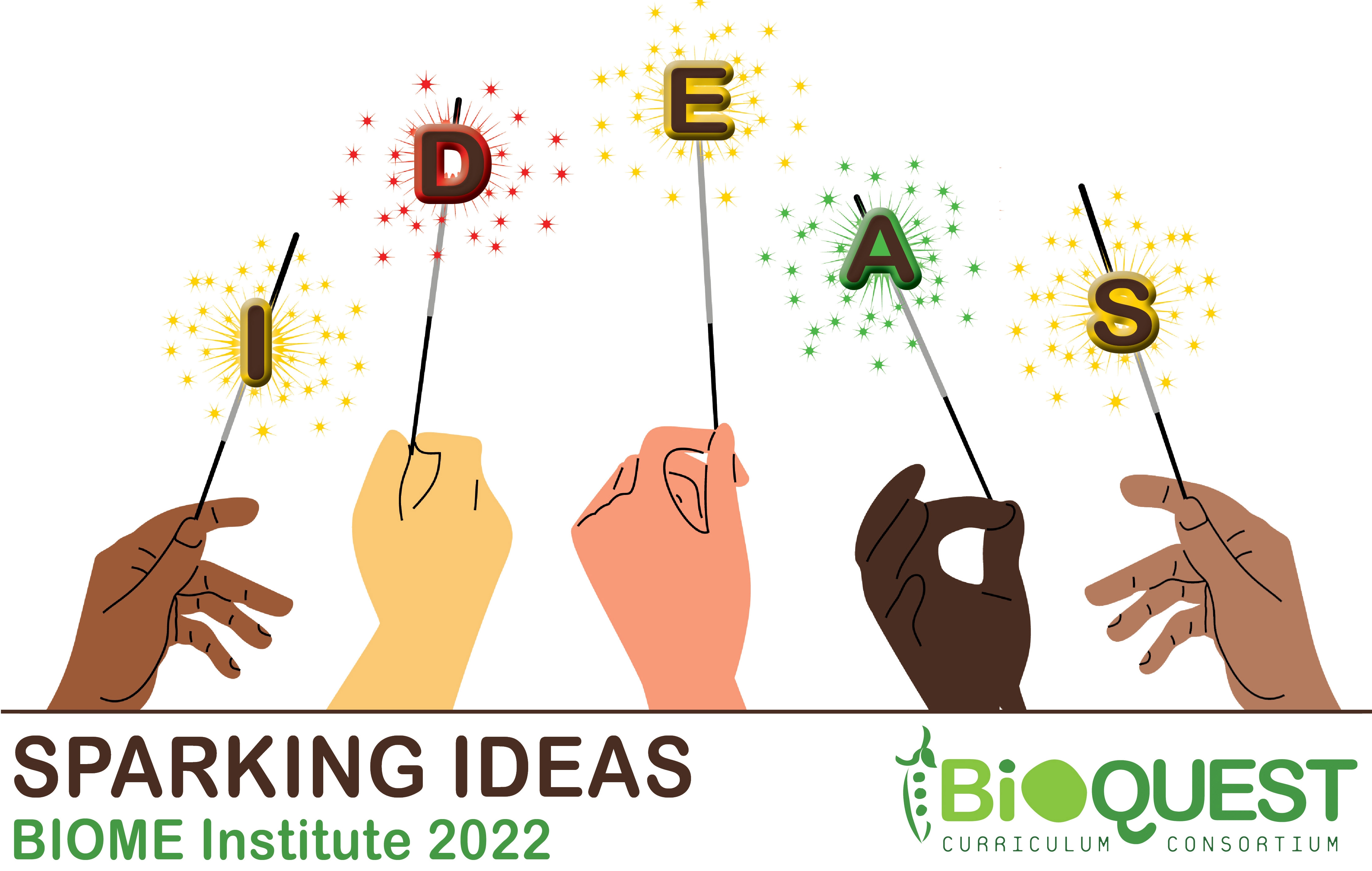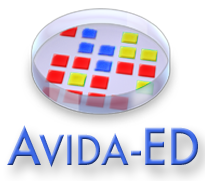During Workshop Week of the BIOME Institute, you will have the opportunity to learn about these fantastic projects and resources. Please note, these workshops are “flipped” sessions. Please be sure to complete the pre-workshop assignments before the workshop session. Pre-session assignments are being added daily.
NEON Data and Resources for Undergraduate Classrooms
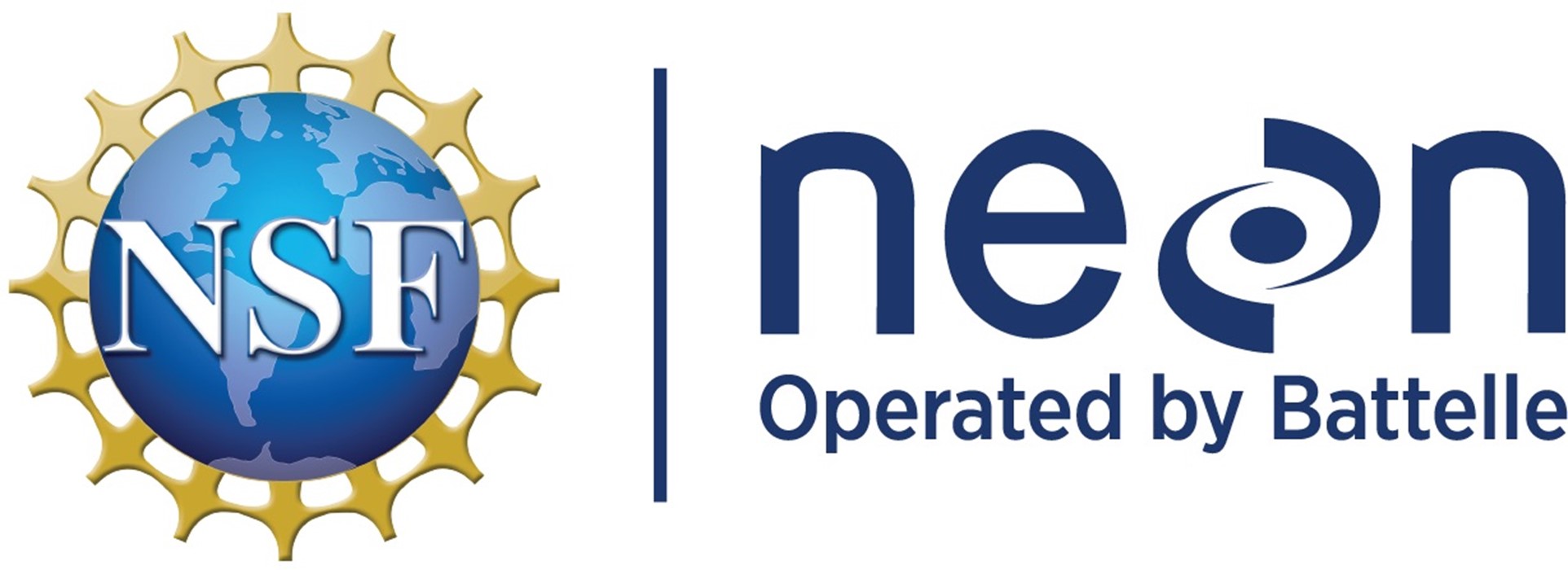
Monday July 18
1:00 - 2:30 ET
Introduction to NEON
Version: 1.0
Co-authors: Marie Faust, National Ecological Observatory Network; Bridget Hass, National Ecological Observatory Network
Description: This workshop, taught by NEON educators, is designed to provide faculty with information and resources to bring real-world, ecological data into their classroom. NEON offers a variety of open ecological data from over 80 field sites across the United States with data applicable to a wide range of ecological subject areas, including microbes, organismal observations, biogeochemistry, remote sensing, and micrometeorology. Additionally, NEON provides a large variety of online resources designed for classroom curriculum development, as well as independent, asynchronous student learning.
In this workshop we will explore the breadth of NEON educational resources, including our Tutorials, Teaching Modules, Protocol Documents, and Science Videos. We will also do some live hand-on programming in R to access and explore NEON data. The goals for this workshop are to increase your awareness of NEON resources (documents and staff!), understand the workflow for working with NEON data in R, and to highlight how each of these can fit into an in-classroom and online curriculum.
This workshop has two main components. First, working with NEON resources and teaching materials that are available for educators. The final portion of the workshop goes into how to access NEON data programmatically from the NEON data portal using R. To follow along with this portion of the workshop on your personal computer, we expect participants have a basic level of familiarity with working with R, including installing and loading packages, and data import. Participants do not have to follow along to benefit from the workshop, however, we recommend following along if participants have a basic knowledge of R.
Pre-Workshop Materials: Access the pre-workshop introductory assignment, materials, and software instructions on this webpage.
Pairing Podcasts With Interactive Data Activities
University of Oklahoma I am a Professor in the Department of Biology, and the Department of Microbiology and Plant Biology. I am also Associate Director for Education at the Kessler Atmospheric and Ecological Field Station. I have taught intro biology more times than I can remember (I think I am at 70+ times), but I still love it. Although there will be challenges, I am looking forward to teaching an online lecture to a very large class this fall.J. Phil Gibson
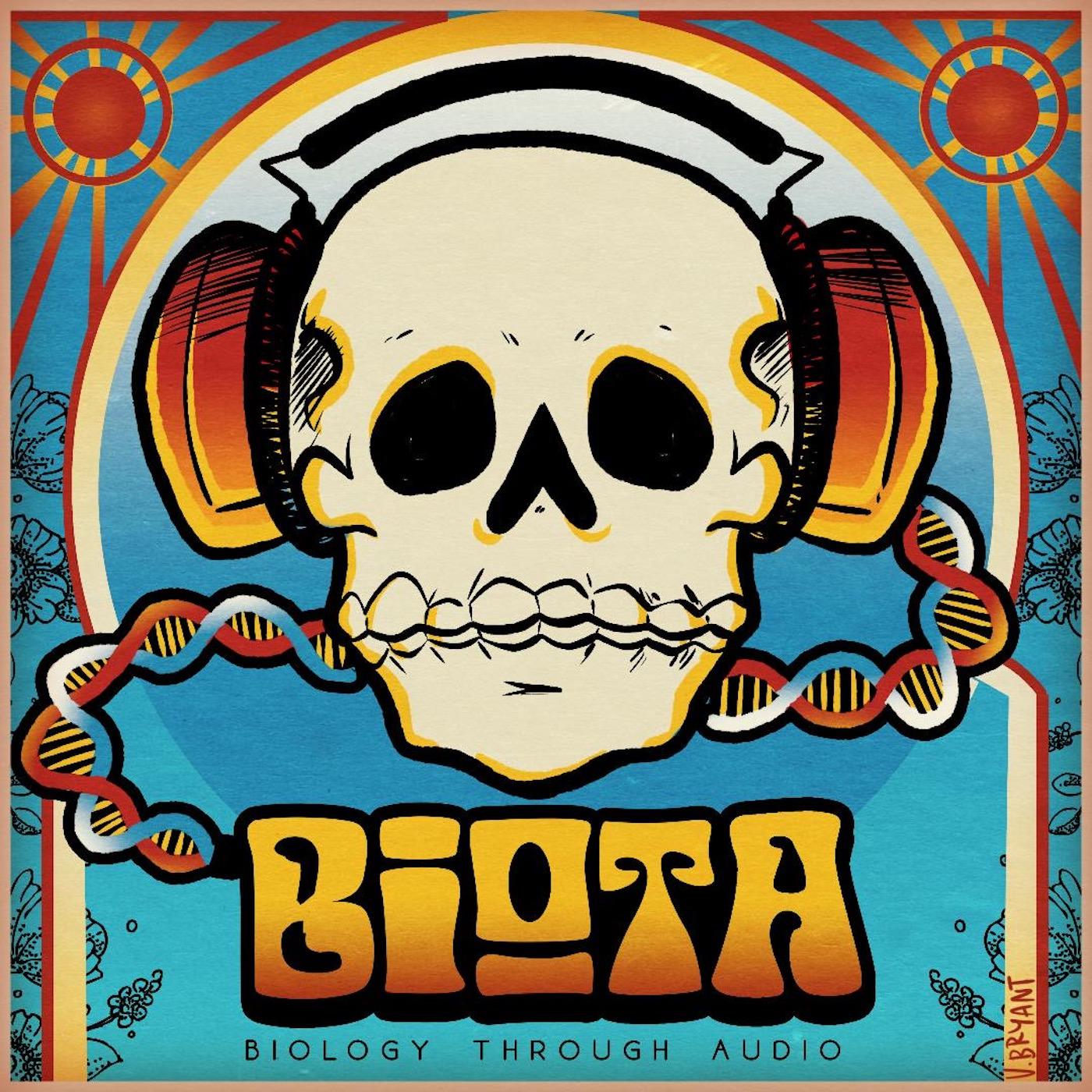
Description: Podcasts have been shown to support modest gains in student learning when they are used as a lecture supplement or replacement in STEM courses. However, podcasts can be used to flip the classroom and provide a pathway to support active student engagement with course material. This workshop will explore use of the BioTA (Biology Through Audio) podcast and how different podcast genres (e.g., Content Acquisition Podcasts, or Narrative Nonfiction Podcasts ) can be paired with in-class or virtual class sessions to engage students and support learning content, concepts, and skills.
Pre-Workshop Materials: Check out these 3 podcasts before the workshop to prepare for what will be discussed. While listening to all 3 would prepare you the most, at least having listened to Bloodsucking Vectors will prepare you best.
Episode 004: Bloodsucking Vectors
Episode 005: The Botany of Halloween
Missing Links Episode: Trees 0012
Using Avida-ED as an Undergraduate Research Experience
Description: Digital organisms are self-replicating computer programs that compete for limited computational resources in a virtual environment. Their replication is subject to mutations that can change an offspring’s ability to use resources in the environment. Over the course of generations, populations display all of the elements necessary for evolution by natural selection: variation, inheritance, selection, and time. Avida-ED is a free, browser-based, digital evolution software program developed specifically for educational purposes, with a graphical user interface and visualizations that allow the user to observe evolution in action. Avida-ED provides not a simulation of evolution, but an actual instance of it.
Avida-ED can be used to create a course-based research experience. In addition to the series of exercises designed to address particular concepts, students can use Avida-ED to generate novel hypotheses, collect extensive data, analyze results, and share these through presentations. Students have significant control of the environment and are able to change parameters such as the world size, the mutation rate, and what resources are available. Individual organisms can be saved in a virtual freezer, analyzed individually to watch how they perform tasks and replicate themselves, and used to start new evolutionary runs. We will preview the primary exercises and consider how Avida-ED can be used to engage students in independent research.
Pre-Workshop Materials:
- View the YouTube tutorial found here: Avida-ED Intro
- Read and complete the Introductory Exercise.
- Watch the QUBES video- Avida ED Tutorial (Teaching Online).
Workshop Materials:
- Avida-Ed program
- Exercise 1 - create a copy of this document to make your own edits
Leveraging the QUBES platform to Support Your Project
Sam S Donovan
BioQUEST Curriculum Consortium
I am the Director of Outreach and Strategic Engagement with the BioQUEST Curriculum Consortium. I have over 25 years of experience teaching introductory biology, ecology, and evolution courses. I'm also on the leadership team of the QUBES project and I spend a lot of my time thinking about how to bring new teaching and learning resources into classrooms.

Description: This workshop will provide hands-on experience working with the QUBES platform to organize a collaborative project. The QUBES platform (supported and managed by the BioQUEST Curriculum Consortium) is a cyberinfrastructure that was developed to support educators and education projects. The primary benefit of the platform is the integration of multiple resources and tools that can be used to coordinate collaboration at a distance, establish a web presence where others can learn about (and join) the project, publish and disseminate products, and support faculty professional development. However, it can be a little daunting to learn your way around all these features and design your group to support your project goals. During the workshop we will set up “sandbox” groups where we can explore different ways to set up groups, organize pages, display resources and take advantage of templates. This workshop is appropriate for anyone who is currently using, or considering using, the QUBES platform to coordinate a project.
Workshop Materials:
Racially Just, Inclusive, and Open STEM Education (RIOS) Institution Learning Communities
Kaitlin Bonner
St. John Fisher College
I am an Associate Professor at St. John Fisher College in the Biology department. I have a PhD from Oregon State University and a MS from University of New Hampshire, both in Zoology. I currently teach Evolution, Parasitology, Intro to Zoology, and Human Anatomy and Physiology. My research interests are in the fields of ecological genetics, parasitology, and molecular evolution, as well as pedagogical research.
Co-Authors: Carlos Goller, Melanie Lenahan
Description: As we engage in Open STEM Education, “Open for Whom?” becomes an increasingly urgent question. Why should we invest in an education that is free, but does not attend to the inclusion of historically marginalized identities? Inclusive and socially-just science education should be part of the framework for investing in tomorrow’s science. The RIOS Institute provides resources for STEM education and organization leaders to implement social justice, equity, diversity, and inclusion (SJEDI)-centered Open Education and Open Science pedagogy, materials, and resources. We work with and provide support for leaders to bring change to their communities and members of their organizations. As part of this work, that RIOS Institute has supported the development and facilitation of Learning Communities that engage faculty and leaders collaborative learning about the Open Ecosystem, including Open Education, Open pedagogy, and Open Science Racially rooted in inclusive and socially-just teaching practices. In this workshop you will engage with RIOS Learning Community facilitators, get your feet wet in Open Education, and bring your own experiences to help inform new Learning Communities idea. We are looking forward to working with you during a Fall Learning Community.
A National Training Program in Inclusive STEM Teaching
Co-Authors: Sarah Hokanson, Boston University; Haley Lewis, Northwestern University
Description: Practicing inclusive STEM instruction requires an understanding of the challenges learners face and developing strategies that actively support their success. Inclusive instructors also must be aware of their own identities and impacts to enhance their connection, awareness, and sensitivity to student experiences. The Inclusive STEM Teaching Project has developed and implemented a massive open online course to 5000+ registrants, developed content for and trained 135 facilitators who have led 60+ optional local learning communities, and is researching the impacts of our professional development and learning communities on instructors and their students. Initial findings demonstrate increased awareness, self-efficacy and ability of instructors to cultivate inclusive STEM learning environments. This BIOME interactive workshop will provide participants with hands-on experiences from the Inclusive STEM Teaching Project, demonstrate how our course centers identity, power, positionality and privilege, and describe key pedagogical features of the course. These include embodied case studies created by the University of Michigan CRLT Players, local learning communities led by project-trained facilitators, synchronous affinity group discussions, and weekly reflections in a My Inclusivity Framework.
Pre-Workshop Materials:
In preparation for our workshop on the inclusive stem teaching project, please view the following three course videos from the introductory module. These will provide a bit of background on the inclusive teaching course, its design, and our core guiding principles. More information can be found on our website.
- Watch the Design and Rationale of the Course (4:56)
- Frames the course within our current national struggle to advance equity, motivates our course’s focus on identity, power & privilege, and instructor self-reflection.
- Watch the Features of Our Course (5:24)
- Describes the central learning activities and innovations.
- Watch the Core Principles of Inclusive Teaching (4:03 min)
- Course creators describe a set of core principles of equity and anti-racism upon which our project, content, and discussion spaces are based and why.
SARS-CoV-2: Understanding, Applying, and Communicating Science
Sharon Maureen Homer-Drummond
AAAS Science and Technology Policy Fellowships at NSF
Co-Authors: Sharon Homer-Drummond; Nancy Barsic-Tress, UP; Emily Drill, CMU; Tomislav Mestrovic, UNIN; Charles Kennedy, TCTC
Description: The ability to integrate process of science training with necessary skills in applying and communicating core theories in biological science and biology quantification, at multiple levels of education, has been brought into focus by the COVID-19 pandemic. Students from high school up through graduate school, and non-traditional learners, have made it clear that they do not comprehend how science is done, why it is done, and how to assess and communicate scientific claims. While the overwhelming 'noise' coming out of the pandemic may seem daunting, it also presents us with an opportunity to develop open resources that help students and learners improve their biological science and quantification skills, as well as their ability to sort through claims and communicate findings. To those ends, we developed a series of linked, OER learning modules, applicable from the high school and community education through the graduate and professional school levels, addressing microbiology, physiology, pharmacology, genetics, and proteomics through the lens of SARS-CoV-2. Students learn about the process of science, appropriate to their educational level, how scientists assess claims, and how to communicate valid findings. These modules are published through BioQUEST as open-resources, and are in the process of being tested and implemented by educators from high school up through professional school. We intend for these to be adaptable, applicable, and scalable, to better teach application of core theories, process of science, quantification skills, and science communication.
Workshop Materials:
A "Box of Lessons" for Exploring Biomolecular Structure and Function
Shuchismita Dutta
RCSB Protein Data Bank, Rutgers University
I am a structural biologist, dedicated to promoting a molecular view of biology. I enjoy visualizing biomolecular structures, learning about their interactions and understanding their functions in atomic detail. I am also interested in pedagogy, visual thinking, spatial reasoning, and topics related to diversity, equity, inclusion, and belonging.
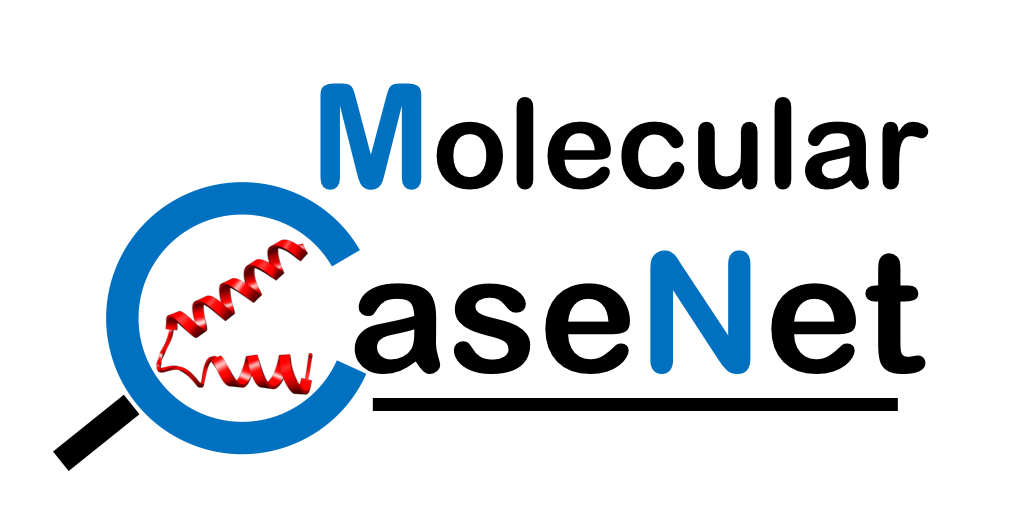
Wednesday July 20
3:00 - 4:30 ET
Co-Authors: Keith Johnson, Bradley University; Alexandra Pettit, Carleton University; Sheela Vemu, Waubonsee Community College; Shuchismita Dutta, Rutgers University
Description: Biomolecular structure and function is emphasized as a core concept in a variety of community determined educational standards for biology and chemistry. Most curricula introduce students to the building blocks and principles of biomolecular structures, in introductory chapters of biology, biochemistry, cell biology, and chemistry courses, but very few engage students in actively visualizing and exploring biomolecular structures throughout the course. The Molecular CaseNet provides a collection of molecular case studies at the interface of biology and chemistry to engage students in examining a variety of biomolecular structures and analyzing their functional implications. Conversations with faculty teaching, developing and piloting the cases, as well as teaching introductory courses helped uncover the need for new resources and professional development to support those in the early stages of introducing authentic biomolecular exploration into their courses. Many faculty are unfamiliar with the vast amounts of bioinformatics data, three dimensional structural data, and rapidly evolving tools for exploring these data. Learning to use these data and tools and developing suitable lessons focused on structure-function relationships can be time consuming and challenging. To address this need, a group of faculty participating in a Faculty Mentoring Network in Spring 2022, gathered together resources and lessons that they independently developed for introducing their students to biomolecular structure and function. These lessons and activities were expanded and additional ones were developed for introducing students to the structures of biological macromolecules, their building blocks, and various small molecules that interact with them. The hands-on molecular visualization and exploration lessons, and their answer keys will be made freely accessible to interested users following some pilot testing. An overview of the lessons will be presented here. Participants will also be invited to pilot the lessons and provide feedback before the lessons are made freely available to the public.
Revealing Hidden Figures within Natural History Collections through Data Sleuthing
Siobhan Leachman
Aotearoa New Zealand Wikimedia User Group
Thursday July 21
1:00 - 2:30 ET
Slides for Revealing Hidden Figures within Natural History Collections Through Data Sleuthing
Version: 2.0
Co-Authors: Siobhan Leachman (Independent, Wikimedian and Data Curator); Molly Phillips (iDigBio, Florida Museum); Makenzie E. Mabry (iDigBio, Florida Museum, University of Florida); Adania Flemming (iDigBio, Florida Museum, University of Florida); Libby Ellwood (iDigBio, Florida Museum, University of Florida)
Description: People are important, and data about people gets considerable attention across disciplines. In biological collections, the names of people that have collected and/or identified specimens are kept alongside other important information like taxonomic information and when and where the specimen was collected. The system of keeping track of who did what is a work in progress however because human names tend to be poor identifiers (not unique or stable). People, as the data creators and managers, also introduce their own biases into the systems they create leading to inequities in who is named, and therefore who receives credit and acclaim, for the collecting and describing of the natural world. New tools are being developed such as ORCID ID, Bionomia, and WikiData to help create and improve tracking and linking the human-side of biodiversity data. These tools are free and open, meaning anyone can help add and improve data about the humans involved in documenting biodiversity . In this workshop, we will introduce participants to these tools and more through the lens of documenting the hidden figures in collections. Siobhan Leachman, Wikimedian and digital curator extraordinaire, will introduce us to how she does this important work, will we get a taste of a few of the tasks in the “hidden figures” workflow and then we will discuss potentials, opportunities, and next steps for how we can use these actions to train and educate our next generation of scientists! We welcome anyone curious about this process to join us and are especially keen for folks to attend that think they may be interested in participating in a subsequent BIOME working group adapting this to be part of a course or CURE.
Pre Workshop Materials: Our only homework is that we ask participants to make an ORCID account if they don't have one already (https://orcid.org/), or make sure they have their ORCID ID handy for the workshop. We will be using this document to guide participants through Siobhan's Hidden Figures workflow during the workshop. (https://docs.google.com/document/d/1x4ravzr4iXT11VGlNqPFxeBUbgGK0nt6aLEcK3P1PYc/edit?usp=sharing)
STEM Writing Project: Using Reflective Feedback on Scientific Writing to Increase Student Self-Efficacy
Dan Johnson
Wake Forest University
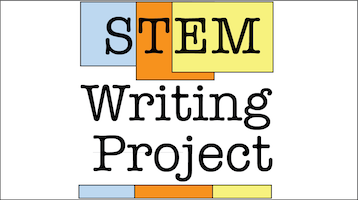
Description: Scientific writing is a foundational skill in STEM, but many instructors make false assumptions about how to teach scientific writing that keep students from learning this skill efficiently. Our Six Elements Method for teaching writing brings together best practices from the WAC/WID research community, data collected from local students, and automated support to increase student success. In this workshop participants will learn how to give feedback on student writing using reflective coaching rather than by copy-editing. Reflective coaching develops student self-efficacy by minimizing the instructor's role as the source of "right" and "wrong," and making students responsible for their own improvement. Participants can practice with our training files, or use reports from their own courses. Follow-up discussion will surface possible implementation challenges.
Pre-workshop Materials:
- Read and grade samples reports
- Read the summary of reflective coaching
Workshop Materials
Can My Students Make a Graph? A New Graphing Assessment
Co-Authors: Stephanie Gardner, Purdue University; Joel Abraham, CSU Fullerton; Susan Maruca, SimBiotic Software; Elizabeth Suazo-Flores. Purdue University
Description: We are developing performance-based assessments of student graphing competencies in biology. Our assessments use examples spread across the typical introductory biology syllabus, allowing an instructor to fit assessments at multiple points in the class to track student progress on learning to graph. The assessments are (mostly) auto-scored to allow data to be gathered in large classes and across multiple diverse settings. Our long-term goal is to use data from the assessments to design better tools for teaching graph construction to biology undergraduates. In this workshop, participants will each try one of our assessments, some of which were designed in an FMN in spring 2022. We'll then solicit feedback on the assessments, show some validity data, and discuss how participants can make use of them in their own classes in fall 2022.
Pre-Workshop Materials:
- Use this instruction document to create an account and installing the software
Workshop Materials:
- Workshop Slides
- Additional worksheet - Graph Construction and GraphSmarts
Implicit Bias in Data Visualization
Derek Sollberger
Princeton University
Thursday July 21
3:00 - 4:30 ET
Description: We want to build cooperative spaces where students can improve the quality of their work in iterative ways. However, are we sure that students will rate each other in unbiased ways. We will take some time to address implicit biases that we may have in an activity where we cultivate critical discussion and scientific skepticism to data visualization examples.
Pre-workshop Materials: Explore the realm of data visualization
Exploring Interdisciplinary Professional Development Opportunities through QB@CC
Irene Corriette
Santa Fe College
Sheela Vemu
Waubonsee Community College
I am a CC-Bio INSITES community college biology scholar. This is a network to support inquiry into teaching and education scholarship (https://www.nsf.gov/awardsearch/showAward) (http://bioquest.org/projects/) fellow and an active participant in Bio QUEST (http://bioquest.org/), CCURI (http://ccuri.org) annual workshops.
Promoting Student Success Using Supplemental InstructionNational Institute for Staff and Organizational Development (NISOD)-Innovation Abstracts, Volume XLI, No. 39 | October 17, 2019
Few of my case studies are as follows:
a) Summer time - ice cream time: Lactase Persistence in Humans is being published at National Center for Case Study Teaching in Science, University at Buffalo (June 2016),
b)Bioengineering a Heart -- Bioengineering a Heart. HAPS Educator 21 (Suppl.2): 15-19. doi: doi: 10.21692/haps.2017.0341
https://c.ymcdn.com/sites/www.hapsweb.org/resource/resmgr/educator_archive/HAPSEducator2017SpecialEditi.pdf (November 2017).
c) https://qubeshub.org/qubesresources/publications/1199/1 Vemu, S. (2019). Adapted Value of Mistakes. Biology Students Math Attitudes and Anxiety Program (BIOMAAP): a QUBES Faculty Mentoring Network, QUBES Educational Resources. doi:10.25334/Q4DT8C
d) Histology Personal Trainer: Identifying Tissue Types Using Critical Thinking and Metacognition Prompts
2019 Aug 30;20(2):20.2.44. doi: 10.1128/jmbe.v20i2.1791
e) Feel the Burn -- Biochemical Testing and the Integumentary System - https://sciencecases.lib.buffalo.edu/collection/detail.html?case_id=1138&id=1138
Few of my workshop presentations are as follows:
a) Promoting success in First year students through multicultural engagement at Midwest First Year Conference http://www.mfyc.org/pdf/MFYC_EDUCATION_SESSIONS_SCHEDULE_2015.pdf
b) Metacognition workshop based on the poster presentation at NIU for Minorities Promise scholars. Promoting Success with Critical Thinking and Metacognition in the Science Classroom for First-Year Students Utilizing Supplemental Instruction https://nabt.org/files/galleries/NABT2017ProgramGuide_web-0002.pdf.
c) OLI conference with Julia Spears and CTP fellows at NIU https://secure.onlinelearningconsortium.org/conference/2014/blended/best-practices-transforming-course-blended-community-improved-student-metacognition
d) http://www.niu.edu/cseas/_pdf/bbflyer.pdf.pdf: Talk on Microbes, Borneo mud and Antibiotic Resistance for Center of Southeast Asia studies.
e) Workshop on Leveraging various opportunities for innovation and network building in the scholarship of community college teaching at 2018 Bio-Link Summer Fellows Forum, University of Berkeley, Clark-Kerr Campus, CA. https://www.bio-link.org/home2/event/2018-bio-link-summer-fellows-forum
f) Assessing Global Awareness in Associate Level Microbiology: Adapting Case Studies and the AAC&U VALUE Rubrics To Examine the Global Challenges of Mosquito Borne Disease". (Intersection: A Journal at the Intersection of Assessment and Learning in press
g) https://www.nsta.org/journal-college-science-teaching/journal-college-science-teaching-septemberoctober-2020/identifying TWO-YEAR COMMUNITY
Identifying Differences in Learning Strategies by Demographics and Course Grade in a Community College Context Journal of College Science Teaching—September/October 2020 (Volume 50, Issue 1)
I am also engaged in Faculty Mentoring Networks (FMN) 2016-2017 that includes face to face workshop experience at Annual Bio QUEST conference with a supportive long term community interaction on the QUBES site. https://qubeshub.org/dataviewer/view/publication: dsl/prj_db_223_8e0c85da2f67271a1f934686266a34efc4b9ee31/? V=4
"Its only skin deep!" is a working group branching from the 2016 National Academies Special Topics Summer Institute on Quantitative Biology. This group is working specifically on the following levels of problem solving: a) Correlation of skin pigmentation with latitude and Vitamin D deficiencies. b) Physiology and biochemistry of melanin synthesis and trafficking c) Regulatory genes involved in process of melanin expression d) Vitamin D deficiency, skin pigmentation related to genotypes.
I am interested in ethno pharmacology as it relates to my Ph.D. work from Chicago Medical School (role of antibiotics in the regulation of transcription in yeast/cancer cell prototype). While teaching a graduate course in Pharmacology (Biology department at NIU as an adjunct), we piloted Pharmacology- active learning exercises with Dr.Lisa Freeman (Pharmacologist when I met her in 2011). I have some interest in adding some chapters on ethno pharmacology to the book as well. https://titles.cognella.com/pharmacology-for-allied-personnel-978162661998
I have deep interest in the exchange of information and understandings about people's use of plants, fungi, animals, microorganisms and minerals and their biological and pharmacological effects based on the principles established through international conventions.
Many of our valuable drugs of today (e.g., atropine, ephedrine, tubocurarine, digoxin, reserpine) came into use through the study of indigenous remedies. During my postdoctoral research, we continued to use plant-derived drugs (e.g., morphine, taxol, physostigmine, quinidine, emetine, vancomycin) as prototypes to develop more effective and less toxic medicinals.

Friday July 22
1:00 - 2:30 ET
Co-Authors: Sheela Vemu, Waubonsee Community College; Irene Corriette, Santa Fe College
Description: The Quantitative Biology at Community Colleges (QB@CC) project provides a platform for open education resource (OER) development. Biology and mathematics faculty collaborate, create, and publish OERs that target key quantitative skills in biology. Faculty can participate in the project in four main ways. In this interactive BIOME workshop, we will walk you through each of these opportunities from the perspective of mathematics and biology community college faculty. We will also give you an opportunity to discover ways in which this project can benefit your teaching and how you can help influence the future of this project. We are crowdsourcing to identify gaps in the current list of OER biology and mathematics topics, preferred module formats, and ideas for improved engagement with the project.
The QB@CC project provides access to a collection of OER modules for use in entry-level life sciences and mathematics courses. It provides Incubators where teams of biology and mathematics faculty from different institutions collaborate to create and publish modules. We know OERs become more valuable as they are used and updated. The Faculty Mentoring Network (FMN) provides a forum where faculty discuss, adapt, implement, and publish their own versions of select OERs. The QB@CC project also encourages publication and provides professional development opportunities.
Creating Game-Based IDEAs using Twine
Brian Bill
Mississippi State University
Friday July 22
1:00 - 2:30 ET
Creating Game-Based IDEAs using Twine (BIOME 2022)
Version: 1.0
Description: Games and gamification-principles are powerful tools that increase engagement and improve learning outcomes when applied appropriately to STEM instruction. The interactive nature of games allows the player to experiment with variables and receive feedback in a low-risk environment. By testing cause and effect relationships, students can develop strong conceptual models and higher-order thinking skills. This training will introduce and discuss the application of gamification-principles by making comparisons to other pedagogical frameworks, such as Universal Design for Learning, Bloom’s taxonomy, and Backwards Design. We will highlight how games can complement existing instructional tools, support student development, and improve inclusivity, diversity, equity, and accessibility in STEM. Participants will practice applying these concepts by designing, creating, and publishing their own educational game using Twine, an open-source tool for telling interactive, nonlinear stories. Twine is easy to learn and implement; game elements consist of passages that are arranged and linked together in a highly visual storyboard. Creating a simple, text-based game only requires the application of two skills: creating and linking passages. More complex tasks, such as adding images, videos, and sounds will be introduced as needed with a wide range of short coding and non-coding tutorials. Completed games are exported in HTML and are playable in any internet browser.
Pre-Workshop Materials: To best prepare for the presentation, click here for some background activities.
